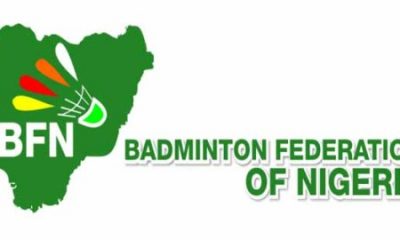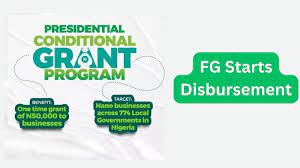Business News
Enhancing The Nigeria Customs Service Through Partnerships

By Mark Longyen
Analysts believe that the Nigeria Customs Service (NCS) is strategic to not only achieving the nation’s economic development but also to ensuring national security.
That explains why many stakeholders argue that the Service can be radically enhanced through collaborative engagements and international partnerships.
The NCS is tasked with three core mandates, which are: robust revenue generation, suppressing smuggling and trade facilitation.
Going forward, they say, these core mandates can be optimally achieved through deliberate, revolutionary, collaborative engagements with stakeholders, home and abroad, besides leveraging the deployment of cutting-edge technology.
Some solicit stepping up the Service’s operations by drastically deepening its existing partnerships with local stakeholders and partners, such as security agencies, government agencies (MDAs), border communities, anti-corruption agencies and the media.
They are of the view that prioritising domestic collaborations and deepening partnerships with international organisations using cutting-edge technologies are critical transformative initiatives that would enhance effectiveness and overall service delivery of the NCS.
Adewale Adeniyi, Ag. Comptroller-General of Customs (CGC), on assumption of office, captured this in his inaugural speech, titled: ‘Embracing a New Era of Excellence’.
This, he intends to achieve by engaging with stakeholders, who will be treated as partners, and adopting technology to streamline processes and revolutionise revenue generation.
“As we embark on this new journey, we recognise the need for collaborations and partnerships.
“We value the relationships we have built with our partner government agencies and the private sector. These collaborations have been vital to our adoption of technology as a tool to streamline processes and enhance revenue generation.
“We will strengthen these partnerships and engage with stakeholders through revitalized platforms.
“By promoting dialogue, we can resolve disputes and advance mutually beneficial solutions that lead to more efficient and effective service’’, he said.
According to him, NCS will continue to treat its esteemed stakeholders as partners, who have a stake in their success.
“It is crucial for us to recognize the modern realities and challenges to Customs operations. In today’s interconnected and technologically advanced world, we face emerging threats that require our utmost attention.
“E-commerce, global supply chains, and transnational criminal networks pose challenges to our role as custodians of trade facilitation and enforcement”, he said.
Adeniyi said NCS will adapt to changing landscapes, leverage emerging technologies, intelligence-led operations, and effective risk management strategies.
He added that collaboration with international partners, local law enforcement agencies and other countries’ customs administrations are critical to combating illicit trade and securing Nigeria’s national interests.
Corroborating Adeniyi’s commitment and determination to change the narrative at the Customs, Abdullahi Maiwada, a Chief Superintendent of Customs, and NCS spokesman, says Adeniyi is imbued with the requisite pedigree to change the Service.
Maiwada assured that under Adeniyi’s leadership, NCS will be on an “exciting journey” towards enhanced efficiency and unlocked potential.
“Through international collaborations, engagements with the World Customs Organization (WCO), exploration of AI-driven solutions, and strategic discussions, the NCS is pioneering innovative projects that will shape the future of Customs practice in Nigeria.
“The Acting CG has engaged in topical discussions within the global Customs community, advocating for the exploration of AI-driven solutions, including Generative Artificial Intelligence (AI) solutions like ChatGPT and advanced geo-spatial intelligence approaches such as GEOINT.
“The NCS has already established a GEOINT unit, leveraging geospatial data, mapping techniques, and satellite imagery to gain valuable insights for customs operations’’, he said.
Maiwada said Adeniyi’s engagements with strategic partners are already getting support for the establishment of a Customs Laboratory, which is a significant milestone in enhancing Customs operations and trade facilitation.
Some of the partners are World Customs Organization, WCO, Japan International Cooperation Agency (JICA) and Japan Customs Administration (JCA),World Trade Organization (WTO), UN Conference on Trade and Development (UNCTAD), UN Office on Drugs and Crime (UNODC), World Bank, and IMF
“Amid the current landscape of evolving global trade dynamics, the NCS laboratory will provide comprehensive solutions to address challenges, such as counterfeit goods, smuggling, and non-compliant imports, thereby bolstering revenue generation and ensuring the protection of public health and safety.
“With its advanced analytical capabilities, the laboratory is expected to deliver precise identification, verification and classification of goods.
“This would enable efficient enforcement measures and informed decision-making towards achieving seamless customs operations, trade competitiveness and national economic growth in line with the vision of the President Bola Tinubu-led administration,” he said.
Joshua Eze, a stakeholder, for instance, recalls that prior to his elevation, Adeniyi won the exemplary CGC Award for his unprecedented seizing of $8,065,612 million cash at the Murtala Mohammed International Airport, Lagos, in January 2020.
According to him, the new dispensation entails striking a delicate balance between trade facilitation and revenue collection.
He said it offers an opportunity to redefine priorities through collaborative engagements and cutting-edge technology to steer the organization towards the path of efficiency, transparency, and modernisation.
“The new Nigeria Customs Service envisioned by the new helmsman needs collaboration and stakeholder engagement.
“Therefore, the new Comptroller-General must actively engage and collaborate with other government agencies, the private sector, international organisations, and regional trade bodies.
“It is expected that CGC Adeniyi will recognise the need to re-balance the priorities of the NCS, placing emphasis on trade facilitation alongside revenue generation.
“He should focus on optimising Customs processes, embracing technology, and streamlining procedures to facilitate legitimate trade flows, while revenue collection remains crucial,” he said.
Leonard Ogamba, President of Shippers’ Association, Lagos, blamed wrong policies over the years for trade facilitation challenges in the country.
He therefore argued that the success of NCS under Adeniyi would depend largely on whether or not the new Customs boss would do things differently.
He urged the new Customs boss and the entire NCS management to collaborate with domestic and international partners, and operate within the confines of domesticated international conventions.
Frank Ogunojemite, President, Africa Association of Professional Freight Forwarders and Logistics in Nigeria, (APFFLON), describes Adeniyi’s appointment as a “rebirth” of the NCS.
He identified modernisation as key to achieving trade facilitation, and agrees with other observers on the need for constructive engagements and collaborations with local and international partners towards attaining a robust Customs Service.
“The modernisation of Customs is very important as this is one of the several factors that will increase trade facilitation, and until we get those things right, we will still not be able to take our place in the comity of maritime nations,” he said.
Ogunojemite also advised that NCS under Adeniyi should engage domestic and foreign stakeholders, such as customs brokers and stakeholders, professional bodies and leaders of thought in the Service’s operations.
Similarly, collaborations and engagements with stakeholders by the NCS under the new dispensation is mandatory for it to attain optimal operational success.
This is the position canvassed by Dr Kayode Farinto, Acting President, Association of Nigerian Licensed Customs (ANLCA.
He said that Adeniyi, being a career officer, must ensure that he is always accessible and regularly engages critical stakeholders in line with the WCO 2013 Handbook.
The document mandates every Customs formation to collaborate with Customs brokers and stakeholders.
Yusuf Malanta, a former Comptroller, Apapa Area Command, NCS, explains that collaboration with other MDAs plays a great role in the high revenue haul.
He, therefore, underscores the role of interagency collaboration in boosting revenue generation, particularly against the backdrop of an unprecedented revenue generation of over N1 trillion by the Command under him in 2022.
Interestingly, the CGC is getting positive feedback from leading stakeholders.
The Accountant General of the Federation, Dr Oluwatoyin Madein, expressed her readiness to collaborate with NCS to increase revenue generation, when the CGC visited her recently.
Madein pledged to collaborate with the NCS and other federal government revenue generating MDAs, by establishing a robust working relationship with them.
The new Customs boss also recognises the place of border communities in the efficiency of the Service.
“One fair commitment I will like to give to you is that we will do better in recruitment from people in border communities because we believe that they are stakeholders.
“Customs-border community relationship is stronger when you know that you have your sons and daughters in the NCS.
“We are also not unmindful that where we have this kind of critical operations, we should also be talking about the kind of corporate social responsibility programmes that we are going to be doing,” Adeniyi said during a visit to border communities.
In line with its commitment to collaborative engagements to enhance its operations for effective service delivery, the NCS has also identified the media as an indispensable partner in progress by seeking collaboration with the Nigeria Union of Journalists, NUJ.
The CGC, who made the pledge at a recent award ceremony of the NUJ in Lagos, explained that such a partnership was necessary because the media informs and educates the public on Customs’ operations.
“The Service requires the support and guidance of the media to consolidate the progress made in trade facilitation and revenue collection aspects of its mandate.
“Smuggling activities, for instance, can be curtailed to a large extent through partnership with the media,” he said.
As Adeniyi marks his first 100 days in office, stakeholders are of the view that NCS should scale up its local inter-agency collaborative engagements and international partnerships leveraging technologies to achieve its core mandates. (NANFeatures)
Business News
NAICOM, RMAFC Collaborate on Economic Diversification

By Tony Obiechina, Abuja
The Commissioner for Insurance and CEO, Mr. Olusegun Ayo Omosehin, and his management team have met with the members of the Constitutional Committee on “Mobilisation and Diversification” of the Revenue Mobilisation Allocation and Fiscal Commission ( RMAFC) led by Engr.
Sani Mohammed Baba, to explore ways of diversifying the Nigerian economy.During their working visit to NAICOM Headquarters, Mr.
Olusegun Ayo Omosehin, in his opening remarks, reaffirmed the critical role of the insurance sector regulator in supervising, regulating, and safeguarding the interests of insurance policyholders.He highlighted insurance’s pivotal role in mobilising savings for long-term developmental projects and enabling businesses to thrive while managing risks effectively.
He also stressed the Commission’s commitment to ensuring insurance companies meet their obligations, thus contributing to the sustainability of the economy.
Speaking, Mohammed Baba emphasised the importance of revenue generation, institutional expansion, and employment creation for Nigerians through collaborative efforts.
The Commissioner for Insurance also acknowledged President Bola Ahmed Tinubu’s ambitious goal of growing the Nigerian economy to One Trillion United States Dollars ($1 trillion) by 2026.
He expressed the insurance sector’s intent to significantly contribute to this objective. Additionally, he mentioned ongoing efforts to embed insurance within the National Credit Scheme to ensure its sustainability.
Omosehin stressed the need for continuous advocacy and sensitization of government institutions about the vital role of insurance in national economic development.
Business News
CBN Unveils Strategy to Boost Remittances, Grants AIP To 14 New IMTOs

By Tony Obiechina, Abuja
The Central Bank of Nigeria (CBN) has activated plans to double foreign-currency remittance flows through formal channels by granting 14 new International Money Transfer Operators (IMTOs) Approval-in-Principle (AIP).
This was disclosed in Abuja on Wednesday, by the Bank’s Acting Director of Corporate Communications, Mrs.
Hakama Sidi Ali, who stated that the initiative will help increase the sustained supply of foreign exchange in the official market by promoting greater competition and innovation amongst IMTOs to lower the cost of remittance transactions and boost financial inclusion.She said, “This will spur liquidity in Nigeria’s Autonomous Foreign Exchange Market (NAFEX), augmenting price discovery to enable a market-driven fair value for the naira.
“It will be recalled that the CBN Governor, Mr. Olayemi Cardoso, had recently declared: “We’ve set ourselves a target to double remittance flows into Nigeria within a year, a goal I firmly believe is within reach.
“We are wasting no time driving progress to remove any bottlenecks hindering flows through formal channels permanently. We have a determined pathway and a sequenced approach to tackling all challenges ahead, working hand in hand with key stakeholders in the remittance industry,” she stated.
Continuing, Sidi Ali, said that the CBN viewed increasing formal remittance flows—one of the major sources of foreign exchange, accounting for over 6% of GDP—as a means of reducing the historical volatility in Nigeria’s exchange rate caused by external factors, such as fluctuations in foreign investment and oil export proceeds.
The increase in the number of IMTOs is one of the primary actions initiated by the CBN’s remittance task force, overseen by Governor Cardoso as a collaborative unit pulling together specialists to work closely with the private sector and market operators to facilitate the ease of doing business in the remittance ecosystem in Nigeria.
The task force was established as a direct result of an executive learning session with IMTOs during the World Bank/IMF Spring Meetings held in Washington DC, United States of America, in April 2024. The task force will meet regularly to implement strategy and monitor the impact of its measures on remittance inflows.
Business News
Tinubu Inaugurates Critical Gas Projects, Reassures Energy Sector Investors

By Matthew Dadiya, Abuja
President Bola Tinubu has reassured investors in the energy sector of his administration’s resolve to further enhance the business environment and ensure investment convenience.
The President spoke Wednesday at the inauguration of three milestone projects, including the expanded AHL Gas Processing Plant; the ANOH Gas Processing Plant, and the 23.
3km ANOH – Obiafu-Obrikom-Oben (OB3) Custody Transfer Metering Station Gas Pipeline.In a speech during the virtual inauguration of the projects at the State House, Tinubu also assured citizens that his administration is stepping up its coordination of other landmark projects and initiatives that will ensure the earliest realization of gas-fueled prosperity in the country.
The President, according to a statement by Special Adviser on Media and Publicity, Ajuri Ngelale, noted that the projects were fully in line with the Decade of Gas Initiative and his administration’s vision to grow value from the nation’s abundant gas assets, while concurrently eliminating gas flaring and accelerating industrialization.
“This event is highly significant to our country as it demonstrates the administration’s concerted efforts to accelerate the development of critical gas infrastructure geared at significantly enhancing the supply of energy to boost industrial growth and create employment opportunities.
“It is pleasing that when these projects become fully operational, approximately 500MMscf of gas in aggregate will be supplied to the domestic market from these two gas processing plants, which represents over 25% incremental growth in gas supply.
“In practical terms, this is more gas to the power sector, gas-based industries, and other critical segments of the economy. I, therefore, commend the strategic vision of the NNPC Limited and its partners, Sterling Oil Exploration & Energy Production Company Limited (SEEPCO) and Seplat Energy Plc, for this laudable and value-adding projects,” President Tinubu said.
The President said his government remains determined in its bid to leverage the nation’s vast gas capacity to drive economic growth.
“Aside from the presidential CNG initiative which is aimed at moving the good people of Nigeria away from petrol and diesel as vehicular combustion fuel, significant progress has also been recorded in incentivizing gas development through Presidential Directives.
“The theme of this inauguration – ‘From Gas to Prosperity; Renewed Hope’, must be adopted by all gas-sector participants and would-be investors as a clarion call to ramp up efforts to accelerate investment and developments of projects in the gas sector on a win-win basis.
“I would once again commend the efforts of NNPC Ltd, alongside SEEPCO and Seplat Energy, on this business partnership initiative, and congratulate you all on the successful implementation of the three projects,” the President said.
President Tinubu also reiterated his government’s resolve to continue to provide support in deepening domestic gas utilization, increase national power generation capacity, revitalize industries, and create multiple job opportunities for economic growth.
“Today, I have the singular honour to inaugurate the expansion of the AHL Gas Processing Plant, the ANOH Gas Processing Plant, and the 23.3Km ANOH to Obiafu-Obrikom-Oben (OB3) Custody Transfer Metering Station Gas Pipeline Projects in line with my administration’s resolve to provide energy for Nigerians, and to use our vast natural gas resources to transform Nigeria,” the President stated.
May 15, 2024



















